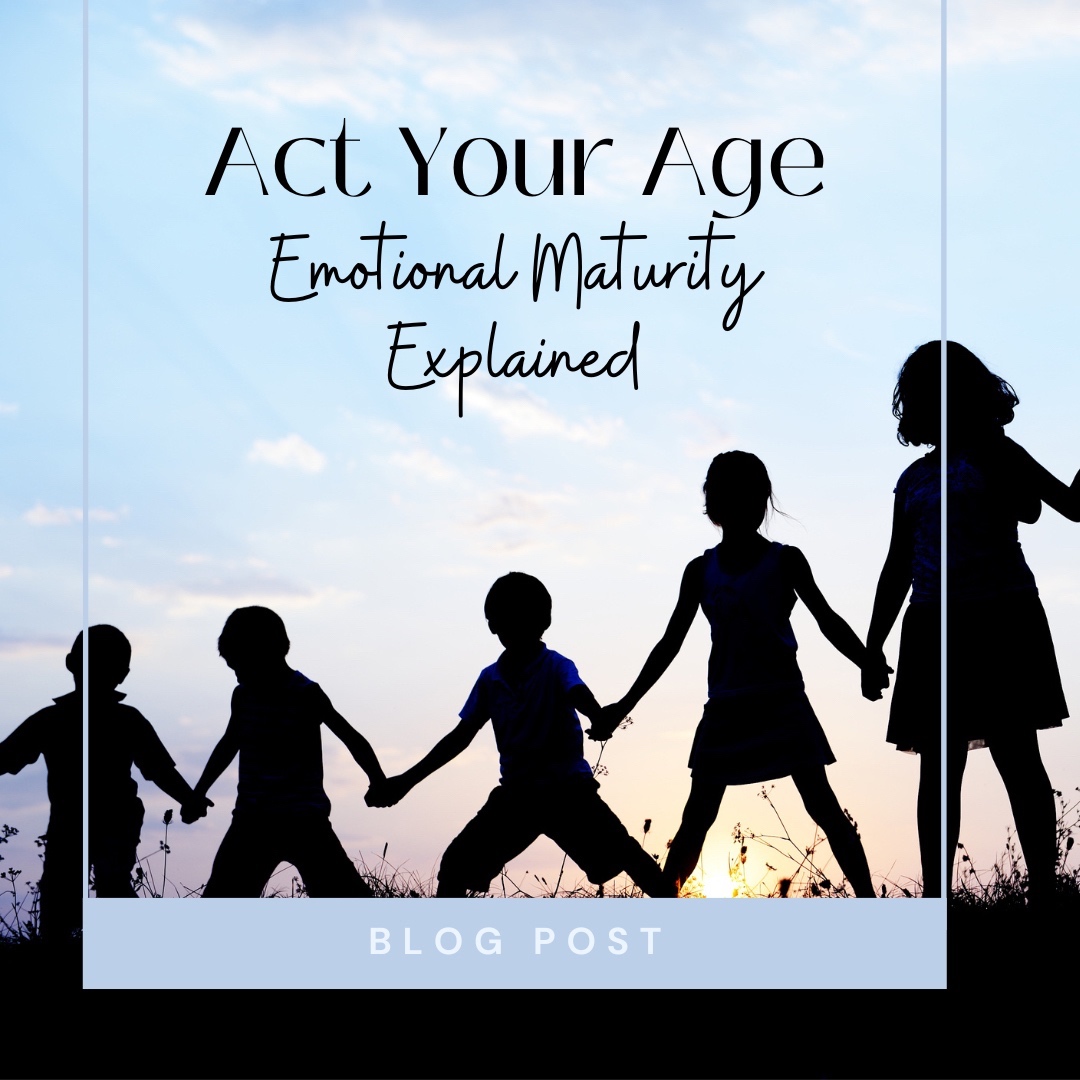Act Your Age

“Why don’t you just grow up?!!” “Act your age!” These phrases sting. They insinuate that someone is acting immaturely or like a child. Let’s think about that idea for a minute. How exactly do children act and how should that differ from how an adult is expected to act?
When babies are born they’re cute but helpless. They require constant attention from their caregivers; they can do nothing for themselves. Everyone who has spent any amount of time with a baby understands that infant care can be exhausting but they also know that the work will get easier over time as the infant grows into a child and becomes a bit more self-sufficient.
Children are able to do more for themselves yet still require a lot of energy from their caregivers. By nature children are ego/self-centered; their world revolves around their own needs because they have not yet developed much of a sense of empathy. All they really care about is what affects them. It is common and natural for children to get cranky or moody when they do not get their way.
When children grow into adolescents (teenagers) they are much more capable of meeting their own needs but will regularly try to strike a balance between independence and dependence on their caregivers. It is natural for people in this age group to be very self-conscious as they learn to operate on their own but at the same time act arrogantly as if they already know everything. They will push back when help or advice is offered. When their freedom and autonomy is threatened they will often rebel or act in unpleasant ways. However, the moment they need something that they cannot get for themselves, they know how to turn on the charm.
People naturally mature into adulthood chronologically but for many different reasons (which we will not get into here) they will get stuck in one of the above categories in their emotional growth. In other words, you can be a full grown adult but still be an emotional child inside. What does that look like at each stage?
An adult emotional infant cannot take care of his or her own needs. They are completely dependent on whoever is willing to take care of them. They are demanding and intolerant of any attention directed anywhere else but on them. It is impossible to maintain a healthy relationship with an emotional infant.
An adult emotional child is only concerned about his or her own self. They have very little empathy for others and will only exercise it if it benefits them. They will manipulate, whine, bribe, become moody, emotional and or threaten in order to have what they want. They can be delightful at times but will do whatever it takes to maintain control of the relationship. While not impossible it is very difficult to be in a relationship with an emotional child.
An adult emotional adolescent/teen craves freedom and independence yet is emotionally needy at the same time. They want to be in a relationship but only insofar as it doesn’t threaten their autonomy. They want their partner to be “all-in” yet they want to remain non-committal. They view requests and advice from others as an attempt to control them. They are arrogant and unteachable yet they are able to be charming and persuasive when they need or want something. It is very difficult to be in a relationship with an emotional adolescent.
So, what does a healthy emotional adult look like? An emotionally healthy adult is willing to meet their own physical needs but is grateful to others who provide for them. They are able to practice empathy and can consider the needs of others without feeling neglected themselves. They are able to receive advice without feeling personally attacked and they are teachable. Emotionally healthy adults have a humble but respectful view of themselves. It is much easier to maintain a good relationship when both partners are emotionally healthy adults.
It isn’t easy to be a mature adult ALL of the time, we all have moments of immaturity but in order to handle relationship challenges and maintain harmony in your marriage you MUST be able to Grow Up emotionally and “Act Your Age.”
